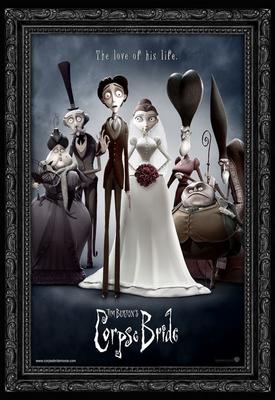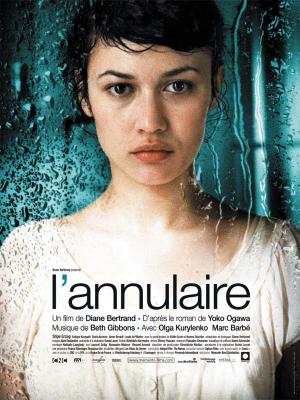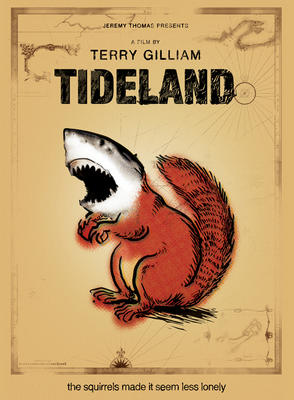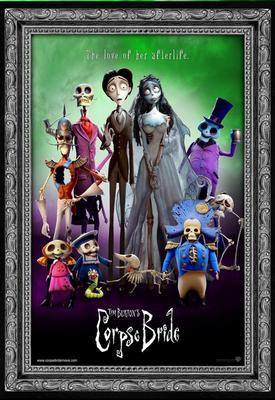
These films represented a generally more artificial approach to storytelling than the others I watched this year (except for Drawing Restraint 9). They tended to be heavy on art direction, heavy on mania, heavy on symbolism; it's a tough sell, and one not many can manage. Wes Anderson is a good example of success, I think, with his Royal Tenenbaums, which wound a whole heckuva lot of artifice around a core of honest sentiments and emotions. The Life Aquatic, on the other hand is a good example of one that got away.
But why did it fail? I think that there needs to be a perfect balance of form and content to produce a good film, and obviously not many can accomplish that. To organize story, sound and visual structures so that they progress believably without drawing attention to themselves is a difficult, difficult thing; we need to create insular little worlds with clear internal logics, setting up and paying off quietly so that the characters can live naturally. I dunno, it's something organic, I guess; each film with its own way-it-should-be-ness, its own natural integrity. Most important though in any work of art is some sort of commentary--a point of view, if you will. Without direction, any work will flounder, searching for a foothold, and as audience members (or museum goers, or readers, etc.) so will we. At the very worst, symbols intended to be imbued with meaning will ring empty and cold, dishonest and false. And anyway, if you're not taking a point of view, then it's more like you're just doing a bunch of stuff.
Everyone buys into different things though; each of us with an individual tolerance for artifice. I, for example, could not for one second believe in Love Actually, while plenty of other people did. For me, one of the thrills of cinema is its occasional moments of clarity and truth, so maybe my ability to suspend disbelief is weaker than others. For films like those below, it makes their job that much more difficult, it becoming much more imperativ that they center around clear central themes, stating and resolving and progressing, always keeping in mind that they have to reveal the heart behind their analogies.

And did they? Not so much. L'Annulaire was both opaque and obvious (mostly), and in the end felt pretty inconsequential. It inspired a timeless/placeless mood, that's for certain, but the journey of the lead character seemed empty and undirected. What was its conclusion? That everyone runs away from things in their life? Sure, and the reprocussions of that? I'm not really sure. It was enigmatic and french though.

Tideland was much more loud and fantastic (although still based in what is supposed to be the real world)--an explosion of colour and camera and characters and weird, random stuff--heroin, doll heads, submarines, taxidermy. I have to admit that I wasn't really nuts about it when I first saw it, but it grew on me a bit. It congealed a little after reading about it and hearing Terry Gilliam's interviews on the website. It still feels empty though. His intention was to show the resiliance of a little girl, exhibiting how she uses the power of her imagination to preserve her through disturbing, difficult times. What happens to her in the meanwhile, however, seems totally random; as my friend Matt was saying, why a submarine? Indeed, why everything? In the end, yes, the girls imagination helps her survive, but through what exactly? What was the significance behind those particular trials? That organisation of events? I'm still not sure.

The Piano Tuner of Earthquakes is the sad story of the Brothers Quay having to accept constraints. In their Q&A, they mostly cited budgetary concerns as the impetus for their choices. After their first feature, Institute Benjimenta, they were told that if they wanted to make more, they would have to be more accessible: in colour, more narrative. They shot in DV to offset costs, snuck in a little animation, but pretty much kept themselves to directing live actors (of varying qualities), eschewing much of the in-camera stuff they typically use in place of digital effects--what you lose is a good deal of the atmosphere, tone and fragile tension so common in their work. While not wholly unsuccessful, this film is by no means their best, and I think you could sense in their voices that they knew. It is grand that they got to make something--I just hope that the next time around they get to be unmitigatedly Quay.

And here is the Grand Dame of films to review: Tim Burton's much loved Corpse Bride. Perhaps the picture above says it best--this movie contains... stuff.
It suffers from a sever lack of direction. Its story meanders through a series of rushed episodes reliant on a familiar story structure reminiscent of nearly every other animated film made in the last ten years. This film is constructed of cliches, top down--moments, gags, story points, characters, songs and colours all leading us to its un/inevitable deus ex machina conclusion. And the sad thing is that at no point do you ever care about the characters--you're never even entirely sure which characters you're supposed to care for. Unmotivated and hollow, they tumble along, changing their minds, going with the flow of things, obeying the bumbling script, but never coming to life. The music is likewise atrocious--forgettable, gratuitous and many a time indeciferable (and I like musicals).
What this film did have going for it were some very nice visuals. Even here though, things felt a touch hackneyed. I would have liked the atmosphere and lighting to have been pushed a little farther, and having seen the suggestive watercolour paintings of Hans Bacher, I'm sure the film could've benefitted from it. The character design too could've been a little more consistant, although only a few characters looked truly misplaced. Most surprising was that some of the animation bore a slight resemblance to the Rankin Bass animation of the 1960's. That's more about feeling than look because, of course, the Corpse Bride offers much in the way of brilliant new stop motion technologies. Some of the animation is just outstanding (although much of it is already in the trailer)--I only wish the animators had a better story to work from.
This film is the hollow shell of something that could have been very good, and that alone makes it well worth watching. Because of the trailer, I came in expecting the Holy Grail of animation filmmaking, and was very disappointed that the film is in fact so forgettable. I shouldn't downplay the enormous efforts of all involved though--it is a monumental film, and surely a sign of good things to come from stop motion animation. It will not dethrone The Nightmare Before Christmas as best stop motion film ever, but it certainly suggests exciting possibilities for the medium if we ever get our stories together.

This comment has been removed by the author.
ReplyDeleteTotally agree with you on "Corpse Bride". The truth is I didn't even survive the whole film: I didn't believe or care about any of the characters, and left around half-way through.
ReplyDeleteQuestion: do you know why your posts seem to be dated to 2005??